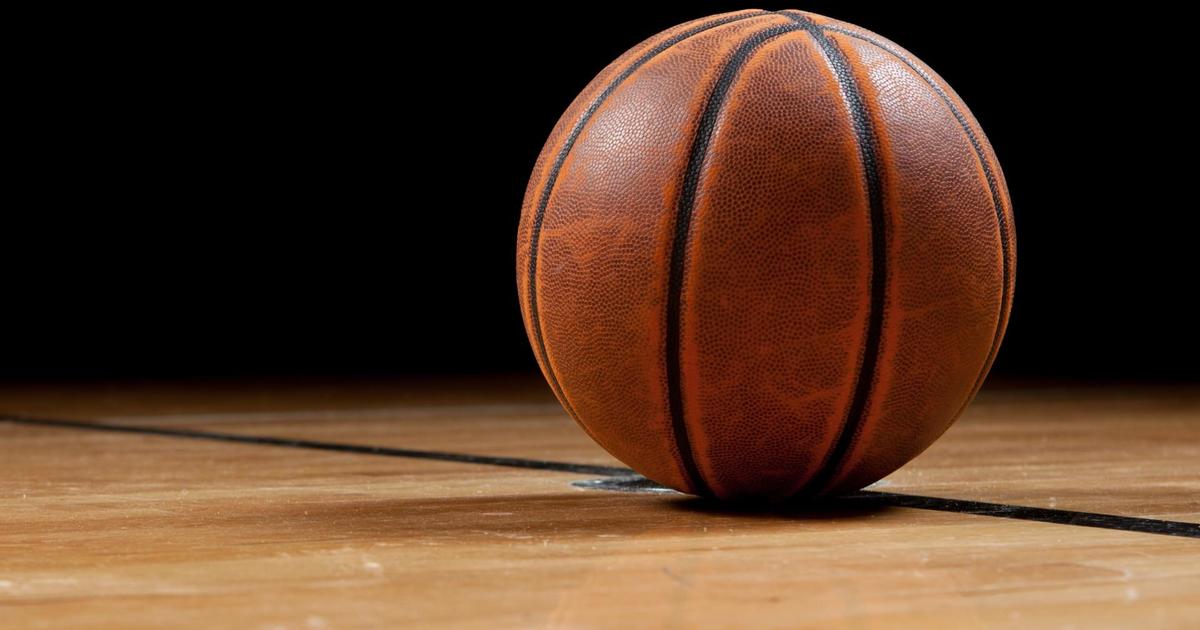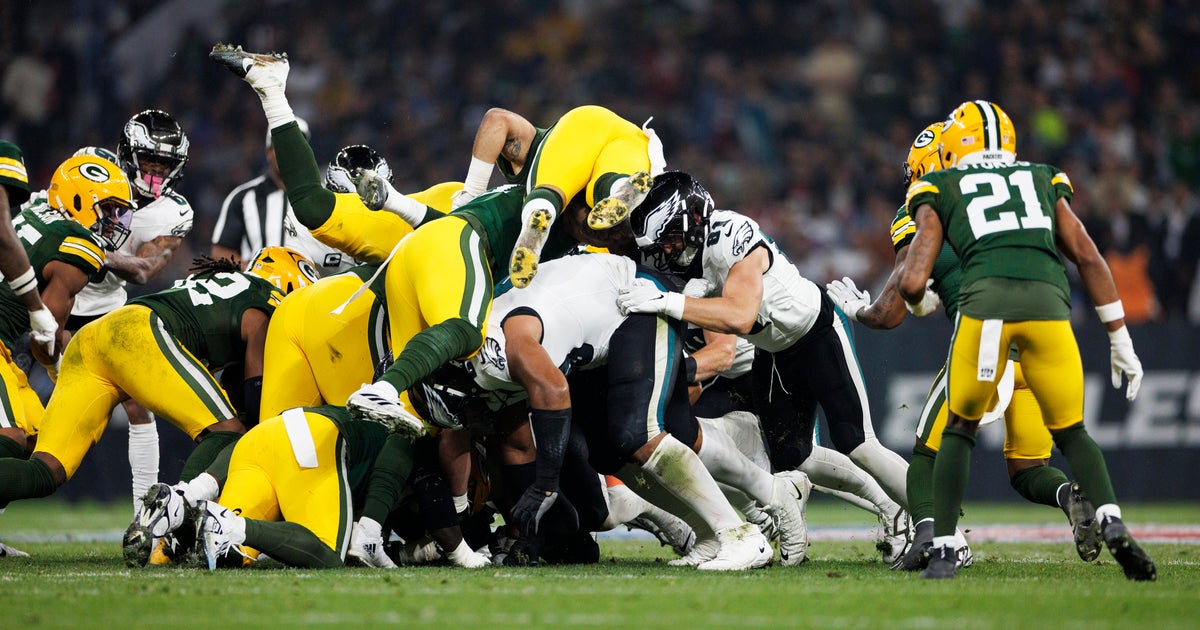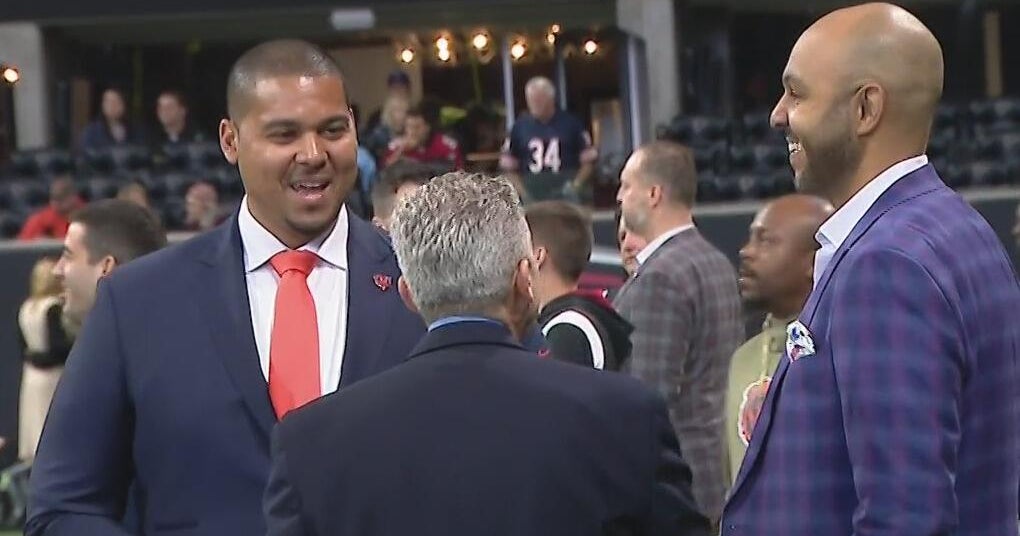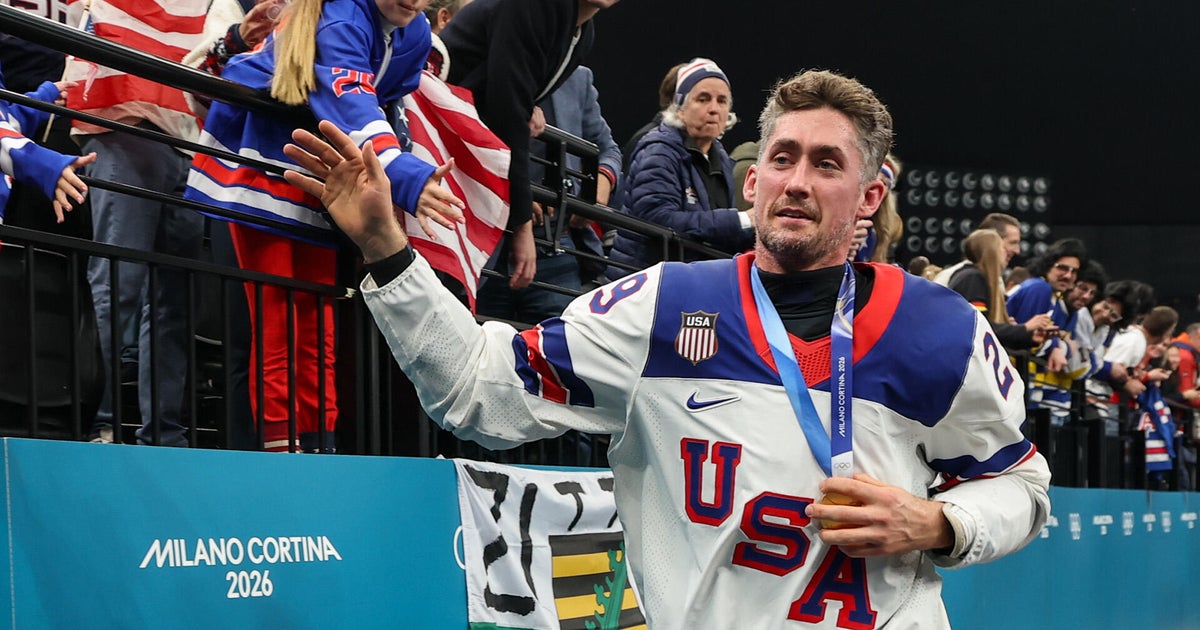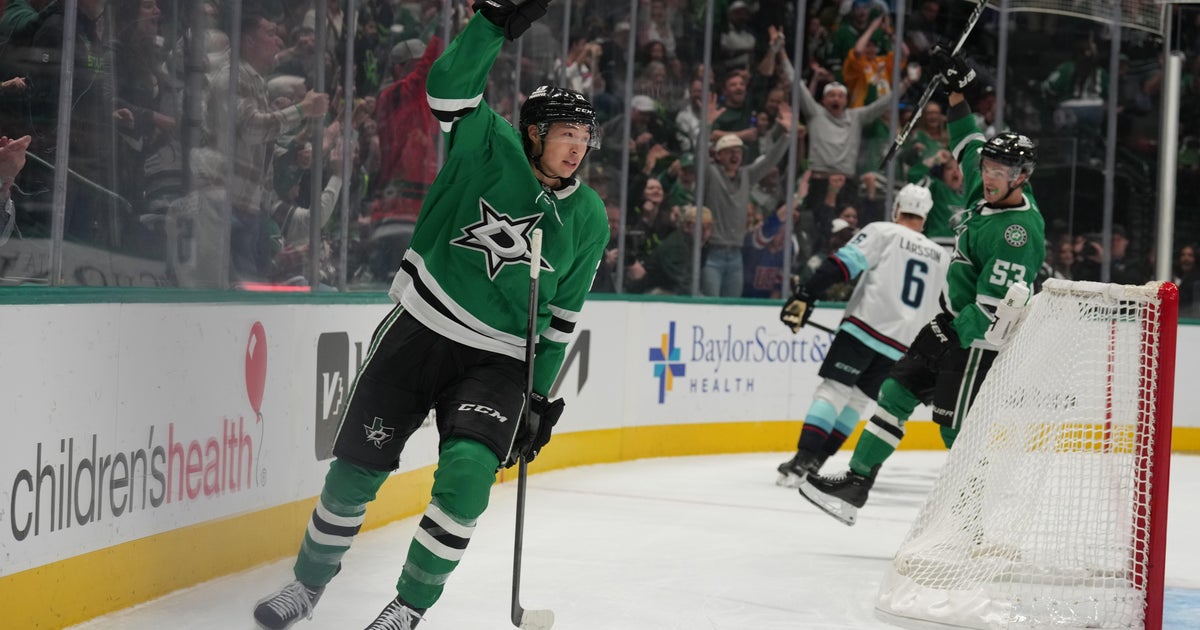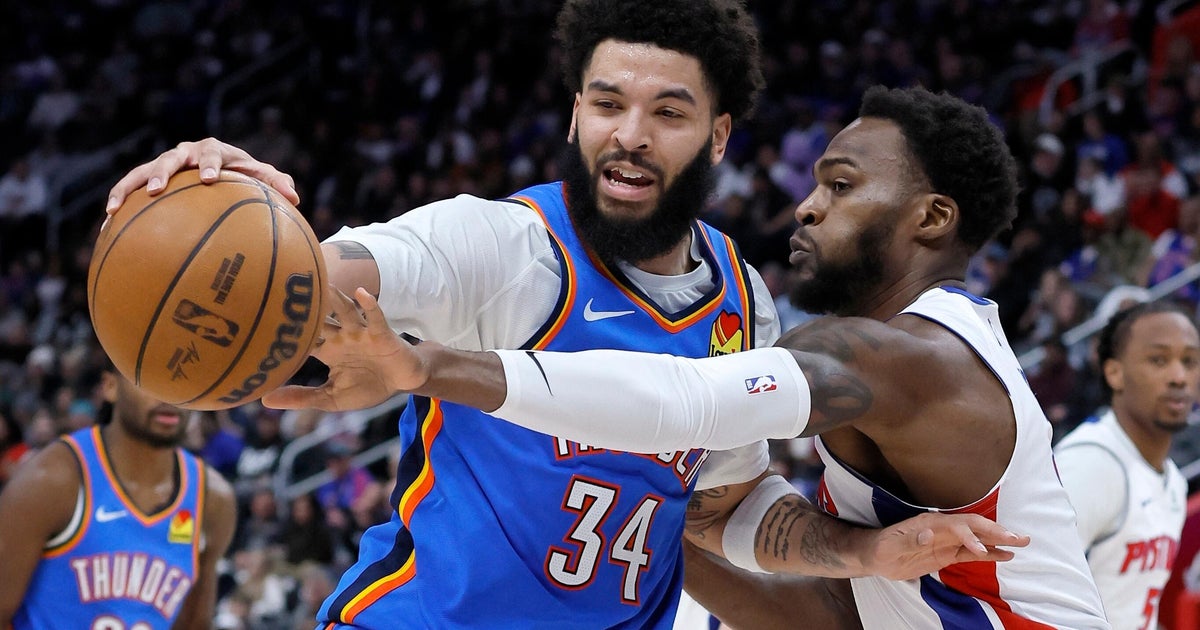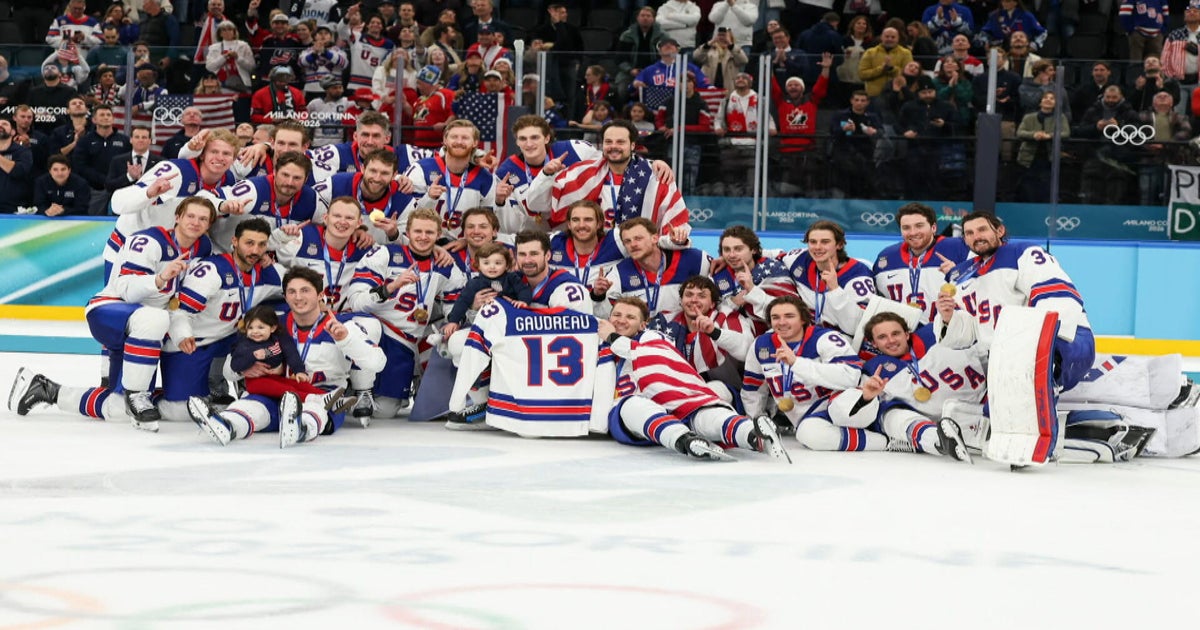Bill Belichick Explains How Randy Moss' Impact On Patriots Lasted Long After Receiver Left Team
By Michael Hurley, CBS Boston
BOSTON (CBS) -- Whether you'd prefer to rank him first, second, third, fourth or fifth, there's really no debating the fact that Bill Belichick is and will be remembered as one of the greatest football minds in history. His 40-plus years of coaching experience, his 250 wins, his five Super Bowls as a head coach and two more Super Bowls as a defensive coordinator -- it all works to tell the tale of a Hall of Fame coach.
And oftentimes, the mark of the brightest minds in any industry is an openness to accepting input from others who may possess specialized information in a way that nobody else can. In the case of Belichick, that input came back in 2007 from Hall of Fame receiver Randy Moss. And it was information that's helped the coach to this day.
Speaking on Tuesday in Foxboro after making the trek to Canton for Moss' Hall of Fame induction over the weekend, Belichick talked at length about his relationship with Moss. And as he's stated before, Belichick easily shared that Moss taught him things about football that the coach had never properly known before.
"I learned a lot from Randy. Randy had a big impact on me as a coach," Belichick said. "He taught me the game from a perspective that I had never really seen before or understood before. I'll always be grateful to him for that, for doing that."
This was a reiteration of what Belichick said about Moss just last week.
"I learned a lot from him," Belichick said earlier in training camp. "[He was] a great, great, great deep-ball receiver. Very smart, has a really good understanding of the passing game and how to attack defenses from his point of view, which is, certainly, as a player, one that I'm not familiar with. [He's] fast and can get over the top of the defenses and understand how teams look at an explosive weapon like him. He made me a better coach. He made us a much better team and he was a great person to have on the team."
For Belichick to eagerly volunteer this information is more than just lip service. And history shows it.
Belichick was a coach who had clearly made his name as a defensive mastermind. His work with the Giants was legendary, and his early years establishing a dynasty in New England followed suit. The 2001 Patriots ranked sixth in the NFL in scoring defense, while the '03 team ranked first and the '04 squad ranked second. The Patriot offenses to complement those defenses ranked sixth, 12th, and fourth, respectively. The offense could clearly score, but defense was at the very least on equal footing in terms of importance. (The Patriots' passing offense ranked 21st in 2001, ninth in 2003, and 11th in 2004.)
But, inspired a great deal by just how effective the Patriots' defense was, the game began to change. The NFL cracked down on contact on the outside by defensive backs on receivers. The rules of the game began to bend in the offense's favor, and Belichick faced a choice: fight an uphill battle that won't be easy to win, or adapt.
Belichick clearly chose to roll with the changes rather than resisting. The Patriots removed their slopped-up natural grass during the 2006 season, and after getting outgunned by Peyton Manning in the AFC Championship Game, decided to go out and acquire one of the greatest outside receivers in the history of football.
From there, everything about the Patriots changed. In the 11 season since 2007, the Patriots' lowest rank in scoring offense has been eighth (when Matt Cassel was the starting QB). They've led the league three times. Their average rank has been third. In terms of yards, their offense has led the NFL three times, finished outside the top 10 just once (when they were 11th in 2014), and has ranked, on average, fourth in the NFL.
Of course, it's helped to have the right man under center. But for as talented and gifted as Tom Brady is, he's unquestionably benefited from the seamless philosophy change the Patriots underwent beginning in 2007 -- coinciding with Moss' arrival.
From 2001-06, in 95 games as the Patriots' quarterback, Brady averaged 7.0 yards per attempt and 227 yards per game. He threw 147 touchdowns and 78 interceptions. His passer rating was 88.4.
From 2007-13, in 97 games as the Patriots' quarterback, Brady averaged 7.8 yards per attempt and 284 yards per game. He threw 212 touchdowns and 56 interceptions. His passer rating was 102.2.
Of course, since then, Brady has undergone a late-career renaissance. In his last 60 games, from 2014-17, he's maintained almost the exact same yards per attempt and yards per game averages, while throwing 129 touchdowns to just 26 interceptions, for a passer rating of 103.0.
For Brady to maintain that level through his late 30s and into his 40s has been remarkable in its own right. But it is merely the latest bend in a career that was completely reshaped back in 2007.
The same goes for Belichick. For as much of his career was about slowing down high-flying offenses, the addition of Moss in 2007 helped the Patriots turn into one of those high-flying offenses almost overnight. It was a change that went off, really, without a hitch. It succeeded even without Brady in 2008, and has carried on as a staple of the Patriots for the last decade-plus.
It has not worked to perfection, as the Giants were twice able to shut it down in Super Bowls. But it's allowed the Patriots to continue their run of dominance atop the NFL. That has been the result of the work of many, many people, to be sure. But the input from Moss clearly helped evolve Belichick's coaching philosophy and overall football knowledge, and it's something that clearly still sticks with Belichick to this day.
You can email Michael Hurley or find him on Twitter @michaelFhurley.
